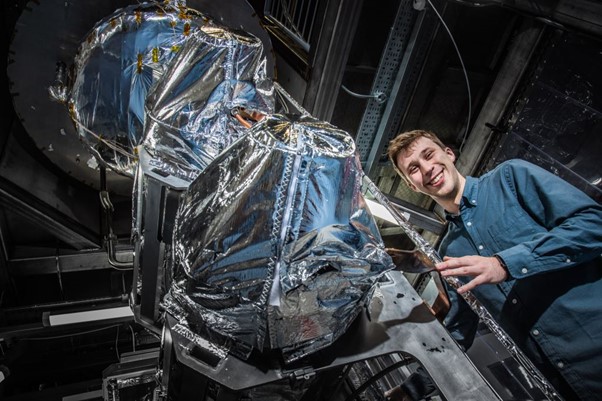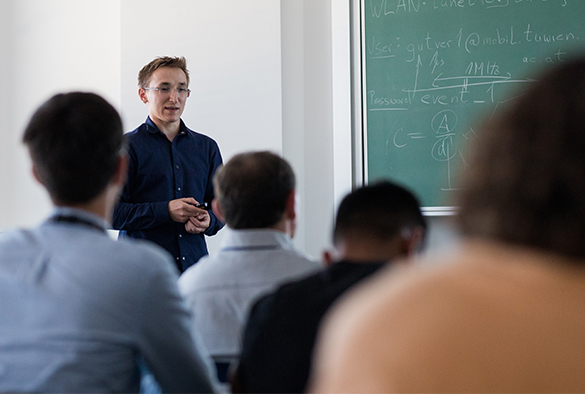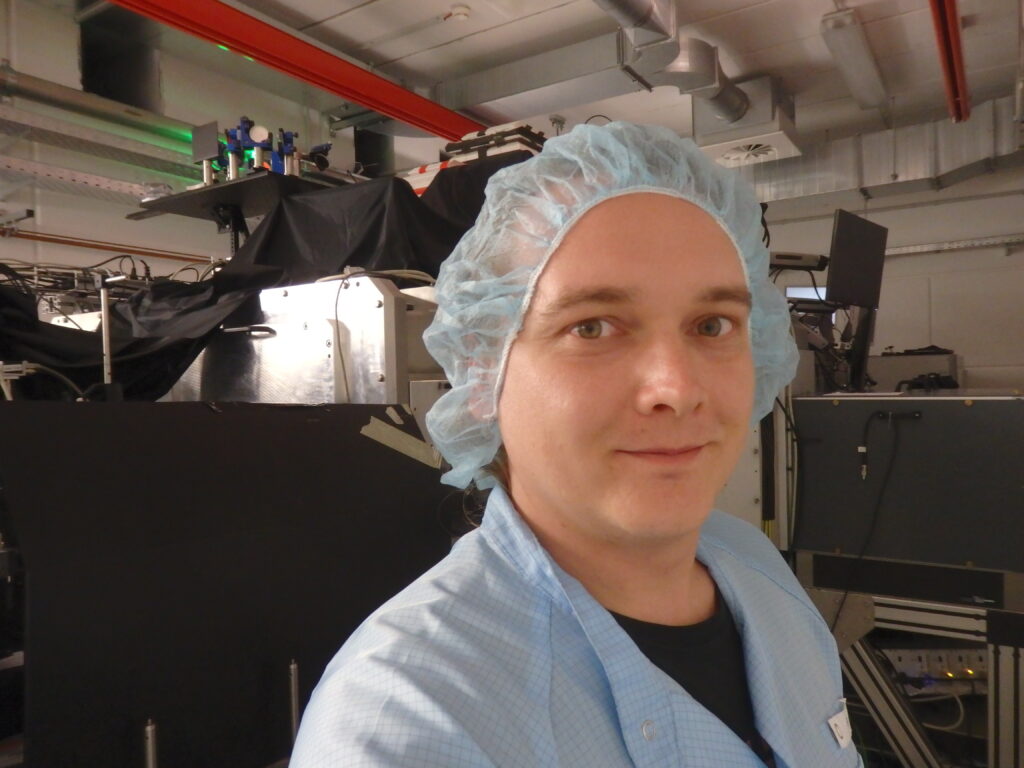The winners of the 2021 Cockcroft Institute Early Career Excellence Awards have been announced. The committee decided to award two prizes for Best Sustained Contribution and one prize for the Best Outstanding Single Output. The winners are:
Best Sustained Contribution:
- Andrew May (ASTeC)
- Volodymyr Rodin (Liverpool)
Best Outstanding Single Output:
- Thomas Heinemann (Strathclyde)
The awards committee was much impressed with the quality of the applications and would like to commend all the nominees.
Andrew May is the Technical Lead for Cryogenics for SuRFLab which is currently testing SRF cavities for the ESS. Andrew is responsible for the operation of this cryogenic system and has had to deliver robust technical solutions for many critical issues. Alongside this work, he is also responsible for coordinating the manufacturing of several key subsystems for the HL-LHC crab cavity cryomodules and has made key contributions to the upgrade to ESS VTF that will be needed for PIP-II cavity testing and cryomodule delivery.

Andrew said:
“I am very grateful to receive this Early Career Award. Cryogenics is a key enabling technology for the next generation of high-energy accelerators and I’m very lucky to be able to contribute to some world-leading projects in ESS, HiLumi LHC, and PIP-II. We have a fantastic team in the SuRFLab at Daresbury and I’m very fortunate to be a part of it.”
Volodymyr Rodin is a PhD student and Marie Curie Fellow in the University of Liverpool QUASAR Group. In his PhD project, Volodymyr investigates 6D beam dynamics in low energy ion and antiproton storage rings and beamlines. His goal is the realistic description of an experimental setup under consideration of all the real-world effects to give an accurate representation of the beam transport and handling in simulation. He uses several complex simulation codes to achieve his results. He has been invited to present his results at several international seminars, conferences and workshops and has directly influenced the design of several cutting-edge research facilities.

Volodymyr said:
“I am very appreciative to win this award, it tells me that my research work, communication with people, and experimental collaboration moving in the right direction. I will continue to advance various aspects of the accelerator physics and help to overcome the existing obstacles.”
Thomas Heinemann is a PhD student with a leading role in the development of hybrid staged plasma- based particle accelerators, a concept that combines the benefits of laser-driven and electron beam-driven plasma acceleration. This can give extremely compact sources for short, high-brightness electron beams. This new kind of hybrid plasma accelerators can allow the realisation of compact light sources and other applications demanding high electron beam quality. They can extend fundamental research efforts on beam-driven plasma accelerators from just a handful large-scale accelerator facilities to numerous high-power laser laboratories, as well as enabling small-scale university research groups to develop and test high-energy collider components.

Thomas said:
“Support from the Cockcroft Institute enabled me to pursue my studies on the exciting field of novel plasma-based particle accelerator schemes. Naturally, I was delighted to hear that this work now resulted in winning one of the Cockcroft Early Career Excellence Awards. Receiving this recognition is a great motivation for me and the team to continue this research and further explore the innovative potential of hybrid plasma accelerators.”
Each of the winners will be invited to give a full seminar on their research at the Cockcroft Institute later this year.
